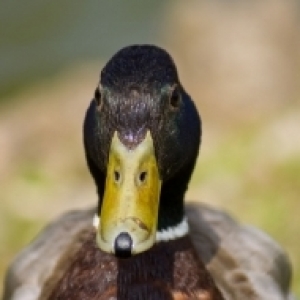The Plight Of The House Sparrow
If any bird epitomises the plight of our song birds, then the House Sparrow must be it.
Once the most abundant bird in our cities and countryside, it is now a scarce visitor to most gardens in Britain.
Passer Domesticus has followed man from being a largely rural dwelling creature to the concrete loving animals we have become. Sadly for reasons that we are now only beginning to understand, they have become a red listed bird. They are in serious decline, an incredible 60% drop in population numbers in the last twenty five years. This is largely put down to changes in farming practices. As a seed eating bird, their food sources are far more scarce. It is quite easy to imagine small flocks of them descending on spillages from grain harvests. Modern farming equipment leaves very little waste .. waste is lost money to farmers .. and so the viscous circle continues. In towns and cities, their insect food, which is vital for their fledglings is disappearing. One theory put forward for this are the increasing number of cars. You only have to look at your front grill of your car on a spring evening to see the sheer number of insects you kill whilst driving.
Researching this blip, I found this startling, and very graphic illustration on population decline on birdcare.com. These figures were collated by Max Kensington, who looked back at bird counts from Kensington Gardens. The numbers reported for a seventy year period were thus:
November 1925 2,603
December 1948 885
November 1966 642
November 1975 544
February 1995 46
It would be a sad loss to the rich biodiversity of this country if this bird is allowed to decline to critical levels.
On a local level, numbers in my garden seem to be slightly up this year. There certainly were good numbers of fledglings in the garden at the end of this years breeding season. Hopefully, this will continue, as both the male and female are delightful little birds to watch from the comfort of your living room, with a mug of steaming tea.
Help the House Sparrows, and get involved with a little social science. Why not join the BTO Garden Birdwatch it is merely £15 a year. It only takes an hour of your week. You don't have to leave your home. You get a brilliant book worth more than the joining fee to help you ID the birds. It is simple to enter your results on-line, or you can do it on a quarterly basis with a paper entry form. Your hour, combined with the thousands of other people who take part help conservation bodies like the RSPB and the BTO plan strategies to help our garden birds.
If you don't want to commit to a weekly bird count, the RSPB do two garden counts a year. The next one is on the weekend of January 28th/29th. You can find out all about it here: The Big Garden Birdwatch 2012 and download a form to count your birds.
Social science is fun, give it a go!
- 3
- 1
- Sony DSLR-A200
- 1/100
- f/5.6
- 300mm
- 400

Comments
Sign in or get an account to comment.


